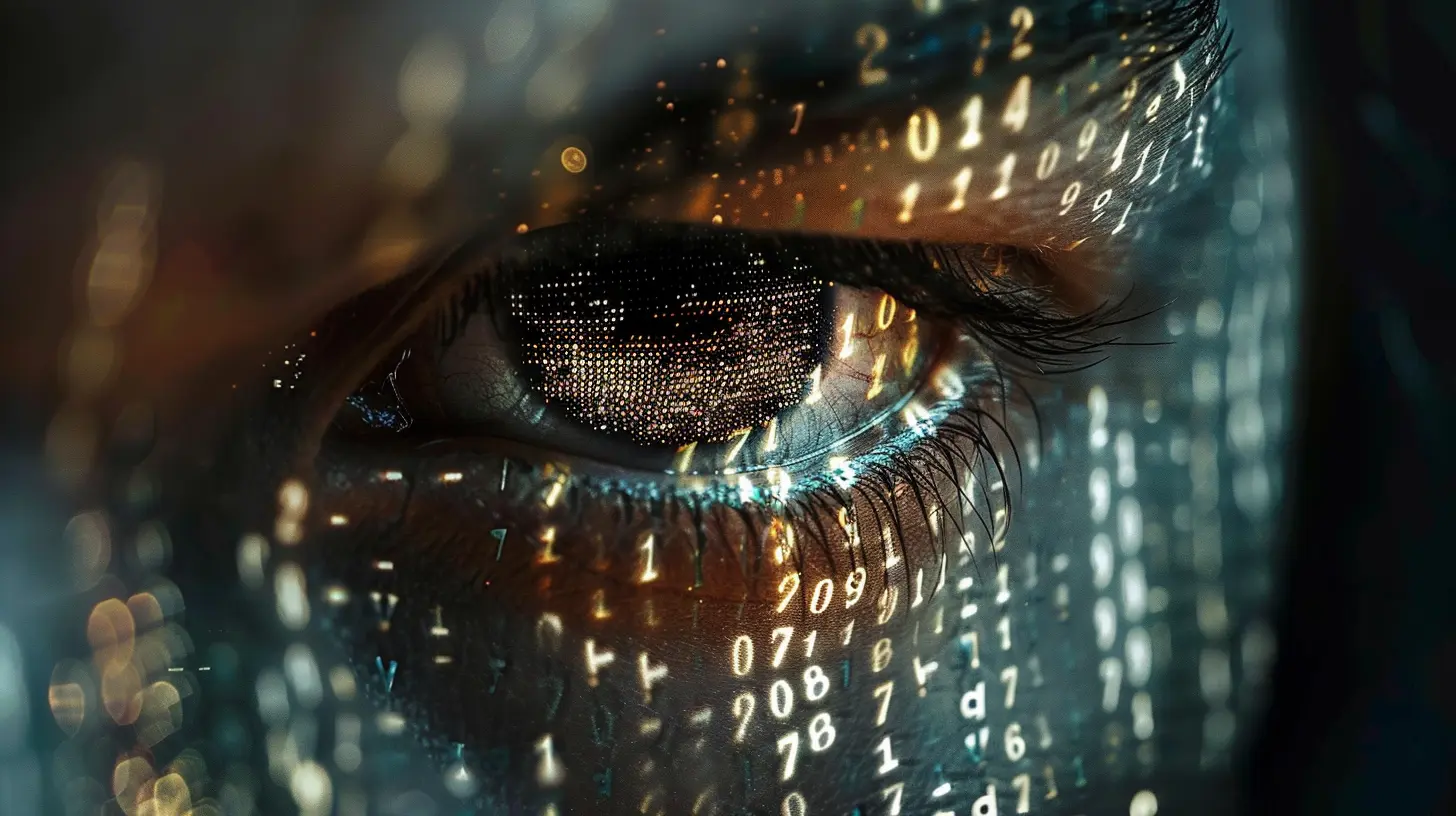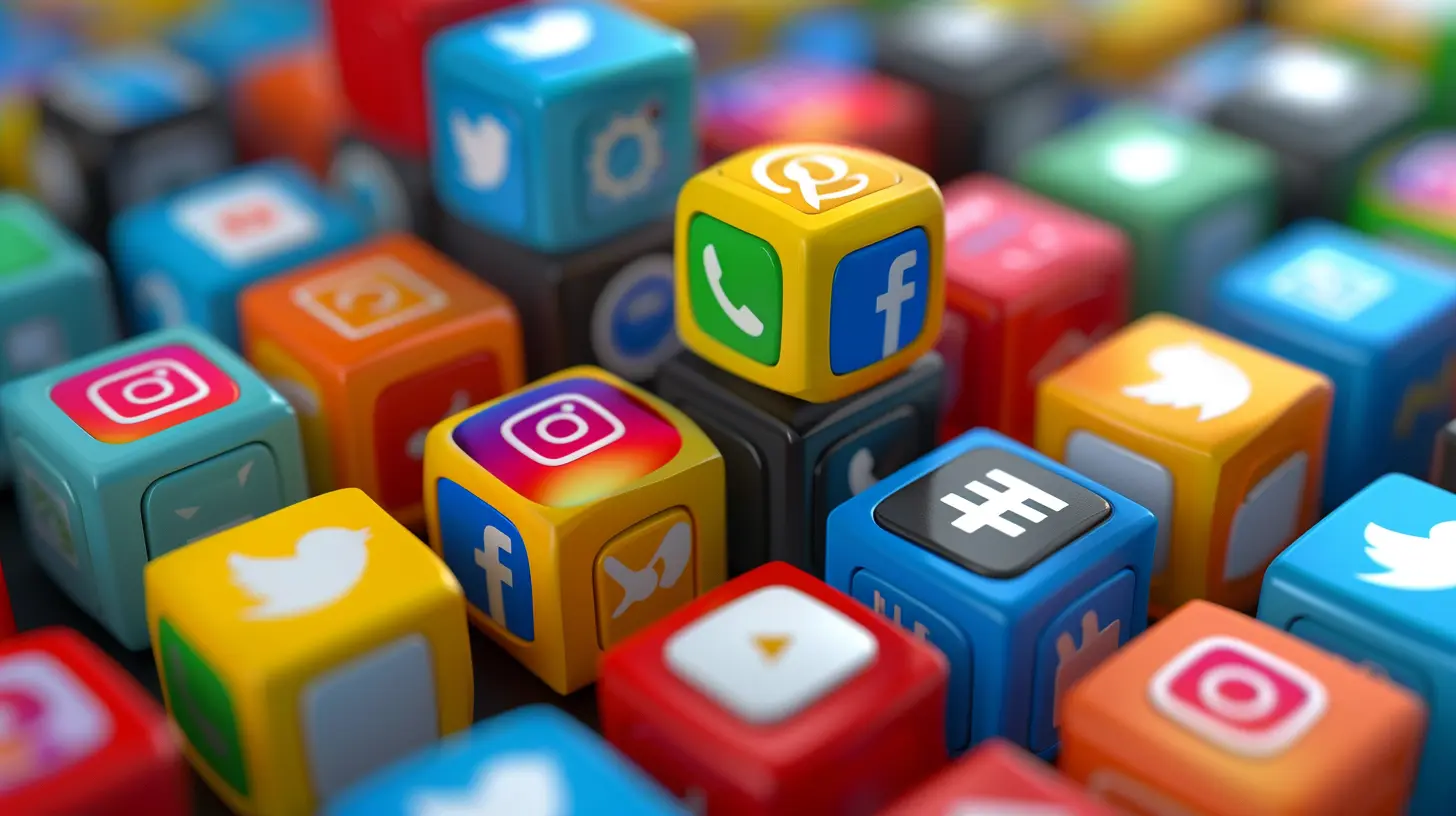The Ethical Dilemmas of Big Data in Social Media
20 November 2025
Big data and social media — two phrases that dance through every tech conversation these days. But under the surface of all those likes, shares, and tweets, there's a growing storm of concerns. As much as data fuels innovation and personalization, it also cracks open a can of ethical worms we can’t ignore anymore.
So let's break this down together. What’s really going on behind your Facebook feed or TikTok scroll? Why should we care? And more importantly, where should we draw the ethical line?
What Exactly is Big Data in Social Media?
Before diving into the ethical swamp, it helps to understand what we’re even talking about.In simple terms, big data refers to massive collections of information — think petabytes of stuff — gathered from various sources. In the context of social media, this data includes personal profiles, posts, comments, likes, photos, videos, location check-ins, and even your scrolling habits.
Every scroll, like, and comment is a breadcrumb that gets collected, stored, analyzed, and used often without us even realizing it.
Now, imagine combining all this data with powerful algorithms — suddenly, companies can predict your behavior, political leaning, shopping habits, or even your mental health. That’s big data in action.
The Temptation and the Trap: Why Big Data is So Alluring
Let’s be honest, big data isn’t the villain here. It brings a lot to the table.1. Personalized Experiences
Ever noticed how your Instagram explore page seems to “get you”? That’s big data working its magic. It enhances user experience by feeding you what you love — be it DIY videos, memes, or cat content.2. Better Business Decisions
Brands use social media data to understand consumer behavior, fine-tune marketing strategies, and even create products people really want.3. Social Good and Research
Big data helps in tackling global issues, from tracking disease outbreaks to studying societal trends.But here’s the kicker — the same tools that do all this good can also be used to manipulate, deceive, or outright invade your privacy.
The Big Ethical Dilemmas We Can’t Ignore
So where does the problem really start? Let’s walk through some of the biggest ethical landmines in this digital minefield.1. Informed Consent — Or Lack Thereof
Ever read the full terms and conditions when signing up for a new app? Yeah, me neither.Most people just click "agree" and move on. That’s where informed consent becomes murky. We assume we're just creating a social account, but in reality, we’re agreeing to let companies collect, store, and sell our data.
And even when we do know we’re giving access, do we really understand the extent of it?
> It's like agreeing to lend someone a pen, but then they take your entire pencil case — and sell it.
2. Surveillance Capitalism
This term might sound intense, but it describes what’s really happening. Companies profit from surveilling your online behavior and selling you as a product to advertisers.It’s not just about showing you a shoe ad after you Googled sneakers — these platforms are predicting when you're most likely to buy, what emotional states make you click more, and which triggers increase engagement.
That’s a different kind of power. And it raises the question: just because you can do it, should you?
3. Data Bias and Discrimination
Here’s a less obvious but dangerous problem — algorithms that unintentionally (or sometimes intentionally) discriminate.If big data is processed without diverse input or ethical oversight, it can reinforce existing stereotypes. For example, job ads might target men over women, or facial recognition might favor certain ethnicities. This isn't sci-fi — it’s happening now.
Big data isn’t neutral. It reflects the biases of the people who collect and design the systems.
4. Mental Health and Psychological Manipulation
Social media platforms are engineered to be addictive. Every notification, like, or share is a tiny dopamine hit. And guess what? They use data to keep you scrolling.This has a direct impact on mental health — especially among teens. Add to that the customized content that can lead users down dangerous rabbit holes (like conspiracy theories or extremist content), and things get ethically shady fast.
Is it ethical to design platforms that exploit human psychology for profit?
5. Misinformation and Fake News
Data-driven algorithms often favor content that triggers emotions — the more outrageous, the better. Why? Because it keeps people engaged.Sadly, that means misinformation spreads faster than facts. Political propaganda, false health news, and deepfakes gain traction, all because the systems are optimized for attention, not truth.
Social media companies argue they’re not publishers, but when their algorithms play editor, that defense starts to crumble.
6. Data Ownership and Control
Let’s ask the million-dollar question — who owns your data?Is it you, the user? Or the platform you posted it on?
Legally, once you upload something, you often give platforms sweeping rights to use that content. Ethically though? It’s murky water. Many argue that users should have more control over what data is collected, how it's stored, and who gets to access it.
Until we clarify those lines, users remain at a disadvantage.
Real-World Consequences: When Ethics Take a Backseat
To see just how serious these dilemmas get, all we need to do is look at a few well-known cases:- Cambridge Analytica Scandal: Facebook data from millions of users was harvested without consent and used to influence elections. It sparked a massive global outrage and raised questions about data misuse.
- TikTok & Data Concerns: Governments have expressed concern over how the app collects and stores user data — especially from minors — leading to national bans and lawsuits.
- Instagram & Teen Mental Health: Internal reports showed Instagram was aware of its negative impact on teen mental health, especially among girls. Yet the features that caused harm remained prioritized.
Each of these examples is a wake-up call: ethical oversight isn't just a nice-to-have — it's a necessity.
So What Can Be Done? A Path Forward
Don’t worry, it’s not all doom and gloom. There are steps we can take — as users, developers, and policymakers — to steer things in a better direction.1. Stronger Data Regulations
Laws like GDPR (in Europe) and CCPA (in California) are a great start. They put power back into the hands of users by enforcing transparency and giving people more control over their data.But more unified, global regulation is needed to keep pace with how fast tech is evolving.
2. Ethical Design Practices
Developers and companies need to bake ethics into platform design from the get-go. That means questioning features that prioritize engagement over well-being and balancing profits with principles.3. Data Literacy for Users
We, the users, need to get a little savvier. Understanding our digital rights and being mindful of what we share can make a massive difference.Simple steps like checking privacy settings, using encrypted messaging, or even taking digital detoxes can go a long way.
4. Transparency and Accountability
Platforms need to open up about how algorithms work and what data they collect. Better yet, they should give users easy access to opt-out of certain data practices.Accountability shouldn't just be about fines after the fact — it should be built into the culture.
Wrapping Things Up
At the end of the day, technology is neutral. It’s how we use it that makes all the difference.Big data in social media has the power to connect, inform, and innovate — but without ethical guardrails, it can also manipulate, exploit, and harm. We’re at a crossroads, and the choices we make now will shape the future of our digital lives.
So next time you scroll mindlessly or click “Accept All,” take a second to think — who’s using your data, and for what purpose?
Because the price of “free” social media might just be your privacy.
all images in this post were generated using AI tools
Category:
Big DataAuthor:

Michael Robinson
Discussion
rate this article
2 comments
Ace Turner
This article highlights crucial ethical concerns surrounding big data in social media, emphasizing the need for transparency and user consent in data practices.
December 2, 2025 at 3:36 AM

Michael Robinson
Thank you for your insightful comment! I agree that transparency and user consent are vital in addressing the ethical dilemmas of big data in social media.
Graham Maddox
This article elegantly highlights the critical balance between innovation and ethics in the realm of big data. As we navigate the complexities of social media, let’s embrace transparency and responsibility. Together, we can harness technology's power while prioritizing user trust and fostering a more ethical digital landscape.
November 24, 2025 at 3:50 AM

Michael Robinson
Thank you for your thoughtful comment! I completely agree—balancing innovation with ethics is essential for building trust in our digital landscape.


